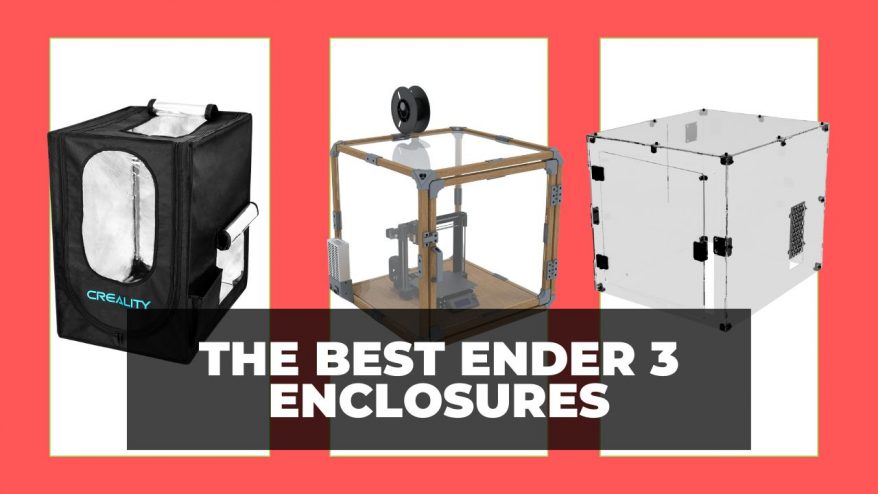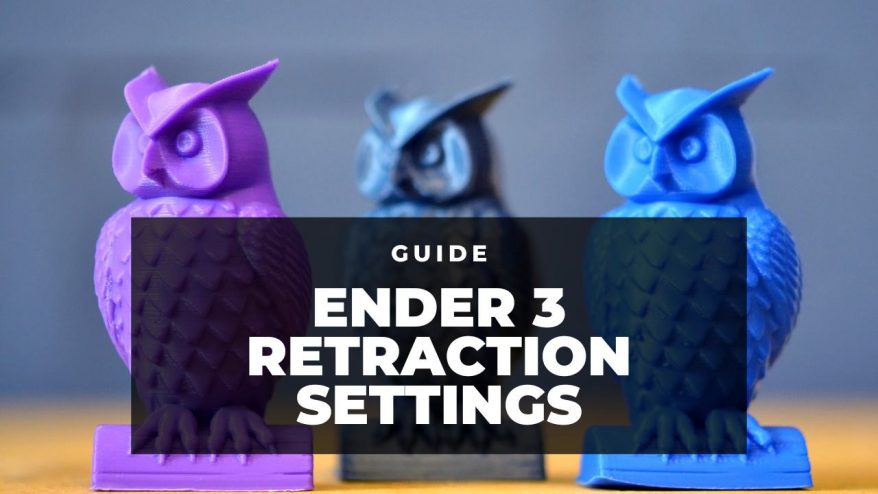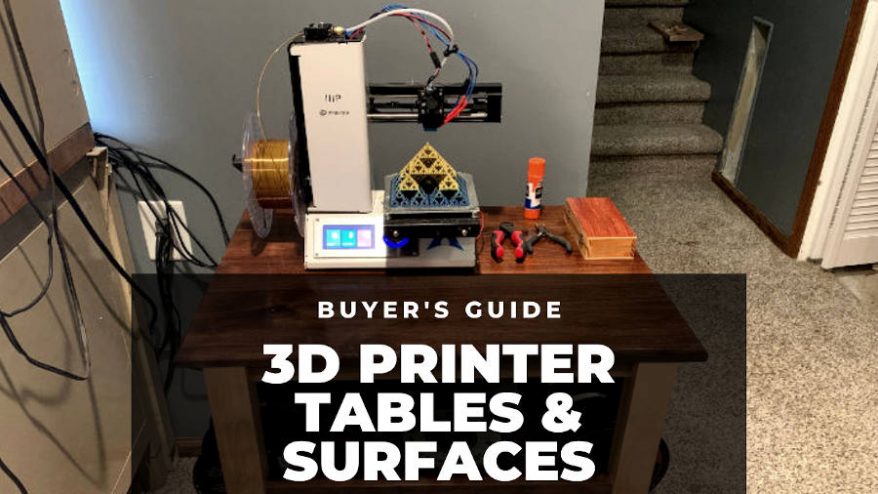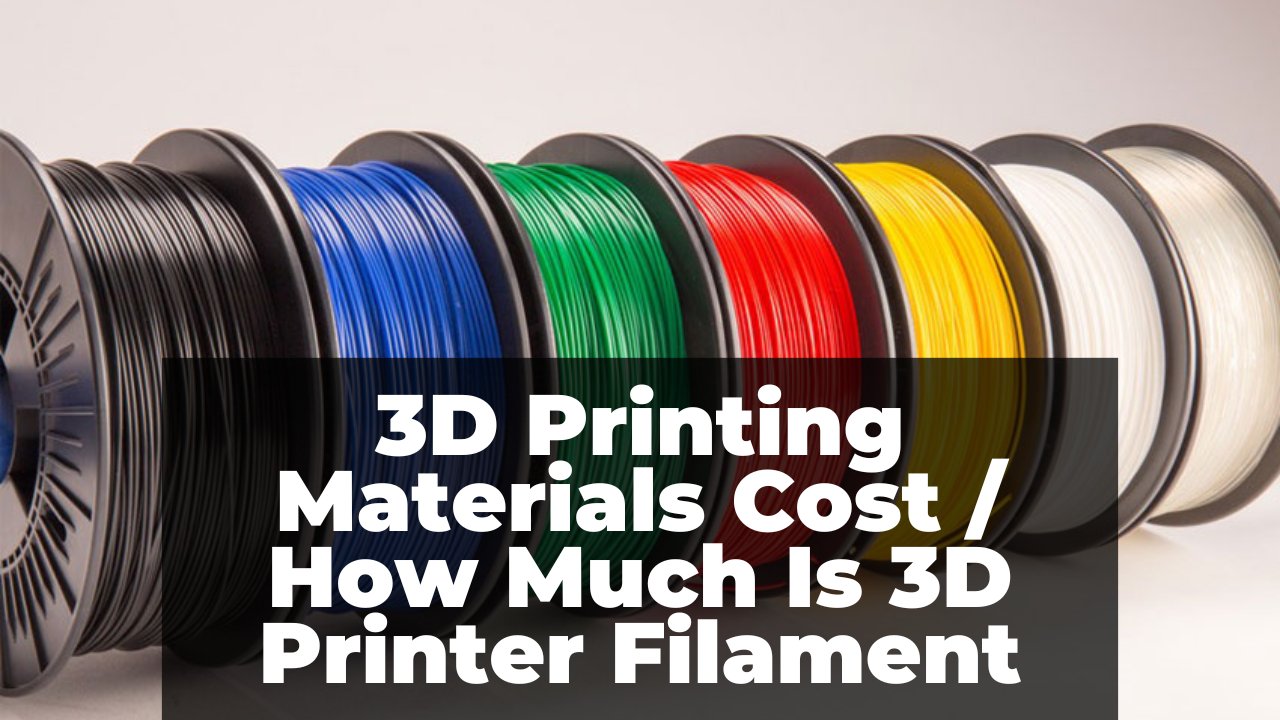
When considering a dive into the world of 3D printers, we often gravitate towards the cost of the printer itself. But, it’s also important to consider the 3D printing materials costs.
Beyond the printer’s initial cost, you’ll need to keep buying filament to support your printing. And, you’re planning on running a 3D printing business, it’s vital to know your filament costs.
Below is a table with a breakdown of the average cost of each material type. Prices fluctuate all the time, so these represent typical price ranges:
| Material | Printing Technology | Average Cost Per 1kg Spool/Bottle |
|---|---|---|
| PLA | FDM | $15 – $40 |
| ABS | FDM | $20 – $50 |
| PETG | FDM | $20 – $60 |
| TPU | FDM | $40 – $100 |
| Other Flexibles | FDM | $40-$100 |
| HIPS | FDM | $20 – $50 |
| PVA | FDM | $50 – $120 |
| Nylon | FDM | $40 – $100 |
| PEEK | FDM | $100 – $400 |
| PC | FDM | $40 – $100 |
| Composite Materials | FDM | $30 – $500 |
| Standard Resin | SLA-Resin | $20 – $50 |
| Flexible Resin | SLA-Resin | $60 – $200 |
| Tough/ABS-Like Resin | SLA-Resin | $40 – $200 |
| High-Detail/8K Resin | SLA-Resin | $40 – $50 |
| Plant-Based/Eco Resin | SLA-Resin | $20 – $40 |
| Water Washable Resin | SLA-Resin | $20 – $40 |
| Draft Resin | SLA-Resin | $150 – $200 |
| Ceramic Resin | SLA-Resin | $200 – $400 |
| Engineering Resin | SLA-Resin | $70 – $200 |
| Dental Resin | SLA-Resin | $60 – $200 |
| PA 12 Nylon | SLS | $150 – $250 |
| TPU/Flexibles | SLS | $150 – $250 |
| PEEK | SLS | $150 – $250 |
So, we’ve pieced together this article dedicated to 3D printer material cost, including how much is 3D printer filament.
Keep reading for an in-depth guide to what affects each materials price, and our recommendations for the best filament or resin for the price to pick up in each category.
We’ll touch on all the most popular materials for the three main printing technologies:
- FDM
- SLA resin
- SLS powder
We have included the price range filament and resin type, the true cost of printing parts for specific applications, and how to improve printing performance with added extras like storage, adhesion aids, and more.
How Much Does the Material for a 3D Printer Cost?
FDM filament costs anywhere from $15/kilo for budget PLA, all the way to $400 for specialty PEEK filament. Resin costs between $20/kg for standard hobbyist resin through to up to $400 for specialty ceramic resin. Materials like PA-12 Nylon and PEEK powders used in SLS printers cost, on average, between $150 and $250/kg.
These figures represent the average volume, generally 1 kg of filament, resin, or powder and it’s possible to find a range of prices depending on quality, additives, properties, and intended application.
How Much Does Filament Cost for 3D Printing?
There are various filaments, including popular options like PLA, ABS, TPU, and PETG. A typical 1 kg spool of PLA can cost anywhere from $15 to $40, with ABS pushing the cost per spool to between $20 and $50, depending on the blend. PETG generally costs between $20 to $60 per spool, while TPU is the most expensive of the four with prices anywhere between $40 and $100 depending on the characteristics of the additives and formulation.
FDM Filament Costs – 3D Printer Plastic Price
For each filament, we’ve included both the price per spool and price per model, based on a selection of example models and how much filament they require.
While the variety of models, print settings, printers, and the use of supports all affect how much filament is required and, therefore, costs, we’re aiming for general estimates and averages, so expect a little variation when it comes to printing your own.
To get an average cost per model made on an FDM printer, we loaded three popular prints into Cura to get an estimate of how much filament they require:
- 3D Benchy – 16 grams
- Happy Pot – 221 grams
- Square Pencil Cup – 63 grams
As we breakdown the cost of each FDM filament below, we’ll also mention the cost for each of these three.
PLA Filament Costs
- How Much Does PLA Cost – $15 – $40 per 1 KG spool
- Cost per model – $0.24 per Benchy, $3.00 per Happy Pot, and $0.94 per Square Pencil Cup – using cheapest PLA option
- Best For – Decorative pieces, figurines, household items, rapid prototyping, low wear and tear toys, and other low stress applications
Pros
Cheap
Variety of colors
Easy to print
Low odor, non-toxic, and biodegradable
Cons
Low strength and brittle
Not suited for outdoor, high impact, high stress applications
Poor resistance to heat and chemicals
PLA is by far the most popular FDM filament if only because it is affordably priced and the easiest to use. A typical spool of PLA costs as low as $15, rising to anywhere up to $40 for specialist colors or formulas with additives to improve strength or durability, for example.
HatchBox PLA – Best Affordable Option

A low-cost option that doesn’t sacrifice quality. It’s a general-purpose PLA that plays well with most consumer printers. It’s also odorless, eco-friendly, and has low warp properties. A workhorse PLA that should serve you well.
MatterHackers Quantum PLA – Best Premium Option
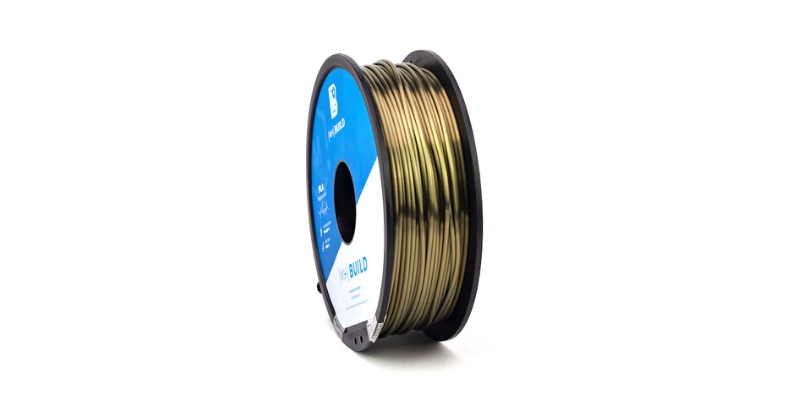
While PLA is known for offering the broadest scope of colors, MatterHackers Quantum PLA takes this a step further with multi-color blends that add life to a variety of models. Depending on the model’s orientation, the visible color shifts, creating a unique effect, perfect for decorative or visual prints destined for display.
ABS
- How Much Does ABS Cost – $20 – $50 per 1 KG spool
- Cost per model – $0.32 per Benchy, $4.40 per Happy Pot, and $1.26 per Square Pencil Cup – using cheapest ABS option
- Best For – Durable toys, action figures, lego-like toys, rapid prototyping, electronic casing, RC cars, brackets, gears, covers, musical instruments, shells, dashboards, bumpers, phone cases
Pros
Relatively cheap
Strong and more flexible than PLA
Suitable for outdoor applications
Reasonably heat, chemical resistant
Cons
Difficult to print with demanding requirements, i.e. an enclosure
Prone to warping, curling, and cracking
Nonbiodegradable
Produces pungent odors
Second in popularity among makers to PLA, ABS is tougher, more durable filament usually called upon for parts and prints that require more resistance to wear and tear. Due to its properties, ABS is harder to work with, requiring a stable thermal environment to avoid issues such as warping during the printing process.
Polymaker PolyLite ABS – Best Affordable Option

A low price meets quality, in what we consider one of the best budget ABS options on the market. Polymaker employs an in-house developed bulk-polymerized ABS resin, which mitigates volatility in the final formulation and keeps odors to a minimum.
MatterHackers PRO Series ABS – Best Premium Option

MatterHackers is known for producing high-quality filament, and its PRO Series ABS is no different. It’s designed for repeatable part production with a focus on producing high-quality functional parts where precision matters.
Print results (with the right settings) deliver consistent results in both quality and dimensional accuracy. PRO Series ABS also comes in a wide range of colors, from classic black and white to more exotic greens and blues.
PETG
- How Much Does PETG Cost – $20 – $60 per 1 KG spool
- Cost per model – $0.32 per Benchy, $4.40 per Happy Pot, and $1.26 per Square Pencil Cup – using cheapest PETG option
- Best For – Engineering parts, electronic enclosures, phone cases, jewelry, wearables, waterproof parts, drones, functional prototypes, dentistry, containers, packaging, durable custom parts, tools, living hinges, protective gear
Pros
Strong and durable
Reasonably flexible
No odor
Heat, impact, and chemical resistant
Relatively easy to print
Excellent glossy surface finish
Cons
Poor scratch resistance
Issues with stringing due to stickiness of the material
Highly hygroscopic
PETG is more durable than ABS and PLA, with also better flexibility, making it suitable for applications subject to heavy wear and tear, stresses, and impacts. It doesn’t smell when printing, resists chemicals and heat well, and is relatively easy to print, notably easier than ABS.
Polymaker PolyLite PETG – Best Affordable Option
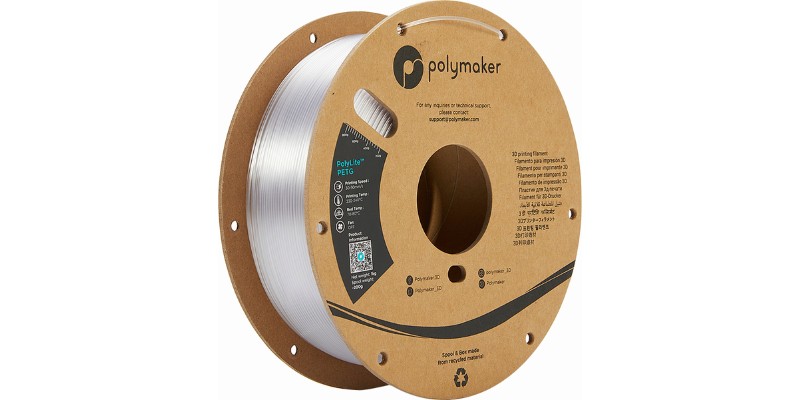
Polymaker is among a handful of manufacturers with a flawless pedigree when it comes to filament. With a low tolerance and a reasonable price, Polymaker PolyLite PETG ticks all the boxes for those keen on an easy-to-use, reliable PETG with excellent material properties.
Prusament PETG – Best Premium Option

Durable and tough, Prusament PETG is a top choice for those with a bigger budget looking for a filament suited to parts subject to extreme stresses and wear and tear.
Prusament’s formulation features low shrinkage and warping properties, and stands out for its glossy, smooth surface finish. Better yet, it boasts considerably lower water absorption qualities than typical low-cost PETG.
TPU
- How Much Does TPU Cost – $40 – $100 per 1 KG spool
- Cost per model – $0.64 per Benchy, $8.88 per Happy Pot, and $2.50 per Square Pencil Cup – using cheapest TPU option
- Best For – Watch straps, phone cases, wearables, shoes, cases, dampeners, sleeves, ties, toys, caster wheels, drive belts, sporting good, medical devices, automotive panels
Pros
Highly flexible and stretchy
Durable, tough, and available in a range of Shore hardness ratings
Absorbs shocks, impacts, vibrations
Low warp, low shrinkage
Cons
Challenging to print
Prone to stringing
Tough post-processing due to its resistance properties
TPU, or Thermoplastic Polyurethane, is a flexible filament that mimics the properties of rubber. It’s a tough, durable filament that’s also stretchy with excellent elongation and can absorb shocks, vibrations, and impacts. It’s also abrasion, chemical, and heat resistant.
MatterHackers MH Build Series TPU – Best Affordable Option

MatterHackers swoops in yet again with its budget MH Build Series to offer thrifty makers a TPU that won’t break the bank but is sure to perform reliably whatever your project.
We particularly like MatterHackers MH Build Series TPU because it’s a highly flexible TPU, which translates to superb durability for the price and elongation properties that you’d be hard-pressed to exceed even with the most demanding, high-stress applications. As it’s a MatterHackers product, it also comes in a huge range of colors.
NinjaTek TPU – Best Premium Option

NinjaTek is all about offering choice, alongside premium quality that’s hard to fault in its TPU range.
There are four different types – Cheetah, Armadillo, Eel, and NinjaFlex – distinguished by their Shore hardness to suit a variety of applications that require an uncompromising and decidedly professional flexible filament.
All four types deliver everything you’d expect from quality TPU (flexibility, resistance to shocks, chemical resistance, great elongation, and so on) but expect to pay for the privilege.
HIPS
- How Much Does HIPS Cost – $20 – $50 per 1 KG spool
- $0.32 per Benchy, $4.40 per Happy Pot, and $1.26 per Square Pencil Cup- using cheapest HIPS option
- Best For – Soluble supports that leave few blemishes and a crisp, clean surface finish when removed, toys, packaging, rapid prototyping, consumer products, mock-ups
Pros
Easy to remove soluble support material
Reasonably priced
Pairs well with ABS
Non-toxic, food-safe, recyclable
Non-hygroscopic
Versatile post-processing, painting, machining, sanding, adhesives
Cons
High odor and fumes
Prone to warping and stringing
HIPS is chiefly used as a soluble support material when printing ABS. This is because ABS and HIPS have similar temperature requirements, which makes them a good pairing. HIPS dissolves in Limonene and is also fairly durable, recyclable, food-safe, and non-toxic.
Due to its high impact resistance and solid elasticity, HIPS can also be used as a primary material for toys, packaging, cases, and appliances.
eSun HIPS – Best Affordable Option

A favorite manufacturer among thrifty makers looking for a balance of price and quality, eSun joins the HIPS marketplace with arguably the most-value packed option for those looking for a reliable HIPS for support generation.
It’s affordable, performs consistently, and leaves next to no marks on prints when dissolved. There’s also a huge range of colors to choose from should you want to dabble with HIPS as your primary material.
Zortrax Z-HIPS – Best Premium Option

The Zortrax name is synonymous with high-quality materials, and its Z-HIPS line-up is no different. It’s through and through a premium HIPS that can of course be used for supports, but really shines as a primary material.
The finish quality is outstanding and each spool is tested against a stringent set of QA criteria to guarantee that every print comes out looking its best. At twice the price of more budget-oriented HIPS, Zortrax Z-HIPS’s cost makes it one for serious makers looking for the best quality HIPS around.
PVA
- How Much Does PVA Cost – $50 – $120 per 1 KG spool
- $0.80 per Benchy, $11 per Happy Pot, and $3.13 per Square Pencil Cup- using cheapest PVA option
- Best For – Soluble supports that pairs well with PLA prints
Pros
Water soluble
Biodegradable
Environmentally friendly
Cons
PVA is expensive
Strict storage requirements
Prone to oozing and clogging
Demanding printer calibration
PVA, not to be confused with the glue found in classrooms across the globe, is a water soluble support material. It’s odorless, colorless, soft, and biodegradable making it one of the most environmentally-friendly materials around.
Its ease of use makes it extremely popular for projects with steep overhangs, demanding angles, and long bridges. It creates no mess and leaves no blemishes or marks when dissolved, leaving a crisp, sharp finish on models.
Polymaker PolyDissolve S1 – Best Affordable Option

There’s no avoiding the high price that accompanies PVA, but with Polymaker PolyDissolve S1 you can make the hit a bit easier on the wallet at $60 a pop – cheap for PVA. Polymaker’s PVA is formulated to work well with PLA, but also TPU, and Nylon. It dissolves well, leaving no marks on print, exactly what you’d expect from PVA.
MatterHackers PRO Series PVA – Best Premium Option

At around $120 for a 1 KG spool, MatterHackers PRO Series PVA is expensive. So what do you get for the extra spend over a cheaper PVA option? The chief draw is excellent dimensional accuracy which helps reduce instances of clogging and oozing, resulting in an easier time printing PVA. As you’d expect from MatterHackers, the print results rarely falter and after dissolving the PVA leaves your print with a clean, crisp finish with no sign of there ever having been supports.
Nylon
- How Much Does Nylon Cost – $40 – $100 per 1 KG spool
- Cost per model – $0.64 per Benchy, $8.88 per Happy Pot, and $2.50 per Square Pencil Cup – using cheapest Nylon option
- Best For – Functional prototypes, engineering, design, tools, industrial models, architectural models, end-use parts
Pros
Affordable
Tough and durable
Impact resistant
Abrasion resistance
Flexibility
Cons
Hygroscopic
Prone to warping
Tricky to print due to demanding temperature requirements
Requires proper storage
Nylon is a tough and durable filament suited for demanding projects that makes it as appealing to 3D printing applications as it is to the textile industry, for example. For all its strength properties, it remains reasonably affordable and versatile. Furthermore, it boasts superb resistance to temperature, friction, and impact.
Overture Easy Nylon – Best Affordable Option

Overture Easy Nylon is among the best low-cost Nylon options around, allowing for even those on a tight budget to experiment with this versatile filament. Overture hasn’t simply tacked on a low price, but also weaved in a formulation that’s beginner-friendly and designed to take some of the challenge out of Nylon. Anti-warping is the headline, which does wonders to eliminate one of Nylon’s biggest hurdles.
ColorFabb PA-CF Low Warp – Best Premium Option

ColorFabb PA-CF Low Warp features all the benefits of typical Nylon but with added durability and strength thanks to a special additive formulation that includes carbon fiber to shore up the tensile properties of printed parts and models. It’s additionally low warp, which eases the printing process. Great for functional parts where overall quality is a top criteria.
PEEK
- How Much Does PEEK Cost – $100 – $400 per 0.5 KG spool
- Cost per model – $1.60 per Benchy, $22.22 per Happy Pot, and $6.30 per Square Pencil Cup – using cheapest PEEK option
- Best For – Medical implants, engineering parts, aerospace components, engine parts
Pros
Lightweight and extremely strong
Resistant to temperature, solvents, chemical, friction, flames
Food-safe and biocompatible
Cons
Expensive
Difficult to print
Demanding printing requirements and environment
Extremely hygroscopic
Of all the FDM filaments is the most professional and usually reserved for high-spec applications in the engineering, medical, performance automotive, and aerospace fields. Expect to pay at least $100, rising to $400 for a 0.5 KG spool.
3DXTech Thermax Peek – Best Option

A high-performance PEEK with superb thermal, chemical, and mechanical resistance. Designed for the most demanding applications.
PC
- How Much Does PC Cost – $40 – $100 per 1 KG spool
- Cost per model – $0.64 per Benchy, $8.88 per Happy Pot, and $2.50 per Square Pencil Cup – using cheapest PC option
- Best For – Optical glass, bulletproof glass, casings, protective gear, masks, shields, engineering, RC cars
Pros
Temperature resistance
Impact Resistance
High strength
Transparent
Cons
Requires high temperatures
Prone to warping
Hygroscopic
PC, or Polycarbonate, is a high strength, temperature-resistant filament designed to withstand demanding applications and conditions. Prices generally start at around $40 per 1 KG, rising to $100 or a little higher for more premium options.
Polymaker PolyMax PC – Best Affordable Option

Much like other Polymaker filaments, PolyMax PC is formulated to be reliable but affordable, suitable for a variety of engineering applications all the way to hobbyist projects like RC cars. PolyMax features low warp properties and low odor.
Ultimaker PC Filament – Best Premium Option

Ultimaker PC Filament stands out for offering superb dimensional stability and overall strength, surpassing cheaper options for overall durability and resistance. The high price means it’s chiefly aimed at professionals and businesses working in demanding fields to make end-use parts, tools, and functional prototypes.
Composite Materials
- How Much Does Composite Cost – $30 – $500 per 1 KG spool
- Cost per model – $0.48 per Benchy, $6.66 per Happy Pot, and $1.89 per Square Pencil Cup – using cheapest composite material option
- Best For – All manner of applications
Pros
Improves the properties of standard material like PLA, ABS, and more
Affordable
Unique blends – wood, metal, carbon fiber
Cons
Overall properties and printing difficulty matches base filament
Composite materials take a standard FDM filament such as PLA and tweak the formula to include a second material to alter the properties of the material. These typically include making the filament stronger, more durable, or changing the finish quality. Expect to pay anywhere from $30 to $500 for premium options containing materials like carbon fiber.
Hatchbox Wood PLA – Best Affordable Option

Contains a mix of PLA with wood filler to create a unique wood-like finish on prints. At $30, it’s only slightly pricier than typical PLA. Hatchbox also offers carbon fiber, stone, silk, and metallic composite alternatives.
Kimya PEKK Carbon – Best Premium Option
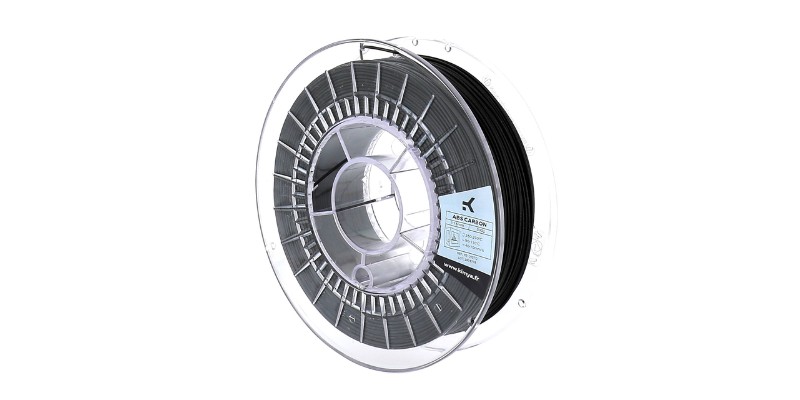
The filament merges PEKK and carbon fiber for excellent rigidity and heat resistance making it suitable for use in engines, for example. At over $500 for 1 KG, it certainly doesn’t come cheap.
Extra Costs for 3D Printing Filament
- Filament dryer – $60 to $200. Popular models include the Sunlu Filament Dryer Box, eSun eBox, and Matterhackers PrintDry PRO.
- Filament storage – $50 to $180. Popular models include the Sunlu Dry Box and Matterhackers PrintDry Filament Drying System & Storage System.
- Adhesive and glue – Around $10. Popular options include Gorilla Glue, Pronto 100% Pure Acetone, and Genuine Henkel Loctite 406 Super Glue.
Resin Costs
We’ll apply the same approach for resin, aiming for both a per-bottle cost and per-model cost. To get an average cost per model made on a resin printer, we’ve taken three different print types and obtained their resin requirements by running them through Lychee:
- Death Trooper Keychain – 32.50 ml
- AmeraLabs Town Calibration Tool – 1.55 ml
- Chess Bishop – 15.16 ml
- Ranni Figurine – 80 ml
- Triarii Mini – 1.20 ml
Standard Resin
- How Much Does Standard Resin Cost – $20 – $50 per 1 liter bottle
- Cost per model – $0.66 per Death Trooper Keychain, $0.03 per AmeraLabs Town Calibration Tool, $0.30 per Chess Bishop, $1.60 Ranni Figurine per Ranni figurine, and $0.02 per Triarii Mini – using cheapest standard resin option
- Best For – General purpose resin prints, miniatures, figurines, decorative and displays pieces, tabletop gaming, terrain, wargaming
Pros
Cheap
Solid detail and surface finish
Easy to print
Cons
Involved and messy post processing
Brittle
Standard resin used principally for general purpose resin parts and models, notably minis and figurines, costs anywhere from $20 for budget-oriented options, up to $50 for premium options.
Sunlu Standard Resin – Best Affordable Option

Sunlu Standard Resin offers the best quality to price value on the market. It’s a simple, no-frills resin that delivers consistent results thanks to low shrinkage properties, dimensional accuracy, and good rigidity.
Flexible Resin
- How Much Does Flexible Resin Cost – $60 – $200 per 1 liter bottle
- Cost per model – $1.90 per Death Trooper Keychain, $0.09 per AmeraLabs Town Calibration Tool, $0.90 per Chess Bishop, $4.80 Ranni Figurine per Ranni figurine, and $0.07 per Triarii Mini – using cheapest flexible resin option
- Best For – Wearables, casing, buttons, seals, grips, handles, rapid prototypes, miniatures, functional parts
Pros
Flexible
More durable and less brittle than standard resin
Easy to print
Cons
Involved and messy post processing
Expensive
Flexible resin offers better elasticity and elongation on break that standard resin making it more durable. Typical prices for a 1 liter bottle of flexible resin start at around $60 rising to $200.
Siraya Tech Tenacious – Best Affordable Option

A big favorite among makers in the know, Siraya Tech Tenacious offers excellent flexible properties along with strength with parts reverting to their original shape after being bent, twisted, and compressed.
Formlabs Flexible Resin – Best Premium Option

Formlabs Flexible Resin is available in two varieties. Flexible 80A offers similar qualities to rubber with a soft feel, while Elastic 50A aims to match the properties of silicone with a soft feel and excellent flexibility. Both offer excellent details, low shrinkage properties, and easy printing.
Tough/ABS-Like Resin
- How Much Does Tough Resin Cost – $40 – $200 per 1 liter bottle
- Cost per model – $1.29 per Death Trooper Keychain, $0.06 per AmeraLabs Town Calibration Tool, $0.60 per Chess Bishop, $3.20 Ranni Figurine per Ranni figurine, and $0.05 per Triarii Mini – using cheapest tough resin option
- Best For – High stress parts and models, miniatures, low tolerance applications, engineering, functional prototyping
Pros
Stronger and more durable than standard resin
Impact, compression, and strain resistant
Suitable for more demanding applications
Cons
More expensive than standard resin
Messy post-processing
Slightly less detail than standard resin
Tough or sometimes known as ABS-like resin has a formulation that blends standard resin with additives with properties similar to those of ABS. It is overall tougher, more durable, and less susceptible to snapping and breaking that typical resin. Prices for a 1 liter bottle start at $40, rising to $200 for premium tough resins.
Siraya Tech Fast ABS-Like Resin – Best Affordable Option

Matching the properties of ABS, Siraya Tech Fast ABS-Like Resin is a tough, durable resin than can withstand knocks and bumps and still remain intact. Unlike many tough resins, this is done without sacrificing complex details and all the rich features shine when this resin is primed and painted, making it a good option for minis subject to plenty of wear and tear.
Liqcreate Strong-X – Best Premium Option

Liqcreate Strong-X has a flexural strength of 135 MPa, making it the toughest consumer resin on the market. It’s strong, stiff, resistant to temperatures, and has low shrinkage properties, so it can be used for more demanding prokects like functional engineering, injection molding, and rapid prototyping.
8K Resin
- How Much Does 8K Resin Cost – $40 – $200 per 1 liter bottle
- Cost per model – $1.29 per Death Trooper Keychain, $0.06 per AmeraLabs Town Calibration Tool, $0.60 per Chess Bishop, $3.20 Ranni Figurine per Ranni figurine, and $0.05 per Triarii Mini – using cheapest 8K resin option
- Best For – High detail models, miniatures, figurines, decorative and display pieces
Pros
Super, high-quality detail
Crisp and smooth surface finish
Brittle like standard resin
Cons
More expensive than standard resin
Messy cleaning and post-processing
Limited colors
8K resin taps into the full potential of the latest advancement in resin printing tech, 8K LCD screens capable of the best details and complexity yet. They are compatible with 4K or even 2K printers but aren’t worth the extra cost unless you have an 8K machine. Prices start at $40.
Elegoo 8K Standard Resin – Best Affordable Option

Though designed for Elegoo Saturn 2 8K machines, this high detail resin works with all 8K printers. The highlight is the superb quality of the prints with fantastic detail, clear and crisp features, and flawless surface finish. It also exists in a water washable variant for easier clean-up.
Phrozen Aqua 8K Resin – Best Premium Option

Arguably the most detailed resin on the market today, Phrozen Aqua 8K Resin produces print to an extremely high standard with superb properties all round. This is the resin if you’re after the most detailed prints possible with a consumer resin printer.
Plant-Based/Eco Resin
- How Much Does Plant-Based/Eco Resin Resin Cost – $20 – $40 per 1 liter bottle
- Cost per model – $0.66 per Death Trooper Keychain, $0.03 per AmeraLabs Town Calibration Tool, $0.30 per Chess Bishop, $1.60 Ranni Figurine per Ranni figurine, and $0.02 per Triarii Mini – using cheapest Plant-Based/Eco Resin resin option
- Best For – General purpose resin printing and the same applications as standard resin
Pros
Environmentally friendly
Cheap
Solid detail and surface finish
Easy to print
Cons
Involved and messy post processing
Brittle
Plant-Based/Eco Resin is identical to standard resin, except that it’s formulated using plant-based products and additives. It is also more ecologically friendly. Prices start at $20, up to around $40.
Anycubic Plant-Based Resin – Best Affordable Option
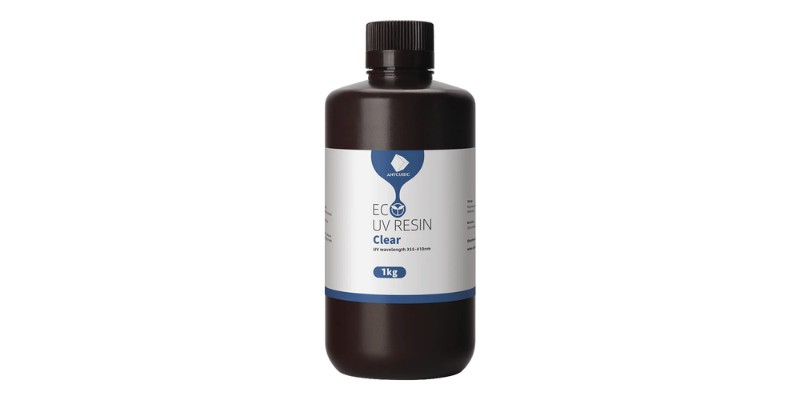
Made from soybean oil and biodegradable with no toxic chemicals, Anycubic Plant-Based Resin delivers the same detail as standard resin and has excellent colors with a distinguishable pop to them. The resin also has a bit more flexibility than typical resin, which helps with durability.
Water Washable Resin
- How Much Does Water Washable Resin Cost – $20 – $40 per 1 liter bottle
- Cost per model – $0.66 per Death Trooper Keychain, $0.03 per AmeraLabs Town Calibration Tool, $0.30 per Chess Bishop, $1.60 Ranni Figurine per Ranni figurine, and $0.02 per Triarii Mini – using cheapest Water Washable Resin option
- Best For – General purpose resin printing and the same applications as standard resin
Pros
Water washable
Easier cleaning
Same detail and finish as standard resin in most cases
Cons
More brittle than standard resin
Contaminated water needs to be cured and disposed of responsibly
This resin distinguishes itself from standard resin for being washable with water rather than potentially harmful isopropyl alcohol. It still remains a toxic substance, but clean-up is significantly easier, making it ideal for beginners. Expect to pay between $20 to $40 for a 1 liter bottle.
Elegoo Water Washable Rapid Resin – Best Affordable Option

Elegoo Water Washable Rapid Resin is an affordable water washable resin that does exactly what it says on the tin. The water cleaning is efficient and as easy as IPA and there’s next to no difference with Elegoo standard resin, though it is noticeably more brittle.
SLS Powder Costs
PA 12 Nylon
- How Much Does PA 12 Nylon Cost – $100 – $150 per 1 kg
- Best For – prosthetics, hinges, housings, assemblies, engineering, automotive, aerospace
Pros
Tough and durable
Resistant
Cons
Expensive
Difficult to print
Nylon 12 is a tough, durable powder with abrasion and chemical resistance prized for the most demanding applications, including those in the engineering, automotive, and aerospace industries. Prices range from $100 to $150.
Formlabs Nylon PA 12 – Best Affordable Option

Formlabs Nylon PA 12 is among the more affordable Nylon 12 options on the market. It’s enhanced with glass to increase stiff and temperature resistance. Common applications include prototypes, end-user parts, and housings.
Sinterit PA12 Smooth V2 Fresh – Best Premium Option

A premium Nylon 12 option that stands out for exceptional surface resolution and finish as the name suggests. It also boasts high chemical resistance suited to structural and mechanical applications, end-use parts, and prototyping.
TPU/Flexibles
- How Much Does TPU/Flexibles Cost – $150 – $250 per 1 kg
- Best For – hoses, seal, footwear, prototyping, end-use products, car interior components, covers, industrial tools, pipes, sporting equipment
Pros
Extremely flexible
Resilient to deformation
Shock absorption
Numerous applications
Abrasion and chemical resistance
Cons
Expensive
Challenging to print
SLS powder TPU and flexibles share many of the same attributes as FDM flexibles – elasticity, rubber-like properties, deformation resilience, excellent elongation on break, and shock absorption. 1 kg costs between $150 and $250.
Best Options – SLS flexibles is a highly bespoke material and isn’t available off the shelf like FDM materials or resin. As such, individual quotes rather than fixed prices are common. With that in mind, here are several top performing SLS TPU/flexibles:
- Ultrasint TPU 88A
- PowderMonkeys TPU 80 and 50
- DuraForm TPU Elastomer
PEEK
- How Much Does PEEK Cost – $150 – $250 per 1 kg
- Best For – Automotive parts, housings, casings, exterior shells, and other demanding engineering, industrial, and aerospace applications
Pros
Lightweight and extremely strong
Resistant to temperature, solvents, chemical, friction, flames
Cons
Tricky to print
Hygroscopic
A high strength, lightweight material used almost exclusively for demanding applications. Prices start at around $150 for a 1 kg spool of PEEK SLS powder.
Related Articles:

